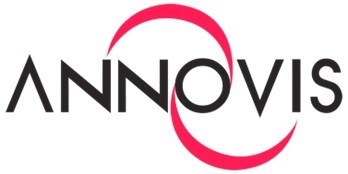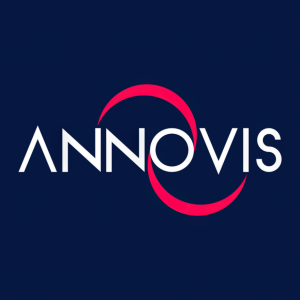Annovis Bio Submits an International Patent Application to Cover the Treatment of Neurological Injuries Caused by Infections
Annovis Bio has submitted an international patent application for Buntanetap, its lead compound, to treat neurological injuries caused by infections. This patent aims to expand its existing intellectual property portfolio, which already covers various neurodegenerative diseases like Alzheimer's and Parkinson's. If granted, the patent could protect the company’s innovations until 2042. Data indicates Buntanetap decreases neurotoxic protein levels and shows promise in clinical trials, enhancing cognitive and motor functions in patients.
- International patent application submitted for Buntanetap expands IP portfolio.
- Buntanetap demonstrates the potential to treat infection-related neurological injuries.
- Promising Phase 2a clinical trial results show improvements in AD and PD patients.
- None.
Insights
Analyzing...
Annovis Bio's Current Intellectual Property Portfolio Covers the Use of Buntanetap, the Company's Lead Compound, to Treat Neurodegenerative Diseases
With this Recent Filing, the Company Seeks Protection for Buntanetap to Treat Infection-Dependent Neurological Injuries
BERWYN, Pa., June 9, 2022 /PRNewswire/ -- Annovis Bio (NYSE: ANVS) ("Annovis" or the "Company"), a clinical-stage drug platform company addressing neurodegenerative diseases, announced today that the company submitted an international patent application under the Patent Cooperation Treaty for its drug platform buntanetap. The patent claims a method of inhibiting, preventing, or treating neurological injuries due to viral, bacterial, fungal, protozoan, or parasitic infections in humans.
If granted, the patent application will add to the intellectual property of the Company whose issued patents to date cover a wide range of neurodegenerative diseases, including Alzheimer's disease (AD), alpha-synucleopathies, such as Parkinson's disease (PD), tauopathies, such as frontotemporal dementia (FTD) and chronic traumatic encephalopathy (CTE) and acute injuries such as stroke and traumatic brain injury. Neurotoxic protein levels, such as APP/Abeta, alpha-synuclein and tau/phospho-tau, are high in both chronic and acute brain injuries. Because infections, whether viral, bacterial, or fungal, also cause an increase in these neurotoxic proteins, buntanetap has the potential to protect the brain from damage caused by infections. Data included in the filed patent demonstrates that buntanetap lowers the levels of these neurotoxic proteins protects astroglia from gingipains and restores normal morphology and function to nerve cells. If granted, the patent could provide intellectual property protection through 2042.
"This new patent application is not only another step in strengthening the Company's position and expanding its intellectual property portfolio but is also additional proof that consolidates our platform. Simply put, the Annovis story and potential are much broader than AD and PD. Because of its unique mode of action, our drug has the potential to act on a variety of neurodegenerative disorders," said Maria L. Maccecchini, Ph.D., Founder, President, and CEO of Annovis.
"All indications for which we are testing buntanetap have a shared basic mechanism: certain proteins are overexpressed, become neurotoxic and trigger a cascade that slows axonal transport, increases inflammation, reduces the viability and function of neurons, and ultimately causes loss of function. Our drug reverses this toxic cascade by selectively inhibiting the translation of these neurotoxic proteins that are at play in these debilitating diseases and, therefore, restores the affected function," Dr. Maccecchini added.
Currently, Annovis is advancing buntanetap for the treatment of AD and PD and expects to start recruitment for a Phase 3 clinical trial in early PD patients this summer.
Buntanetap (previously known as ANVS401 or Posiphen) is an oral translational inhibitor of neurotoxic aggregating proteins (TINAPs), which mode of action leads to a lower level of neurotoxic proteins and consequently less toxicity in the brain. In a Phase 2a clinical trial in AD and PD patients, buntanetap was shown to be well-tolerated and safe, and its pharmacokinetics were found to be in line with levels measured earlier in humans, meeting both the primary and secondary endpoints. Additionally, exploratory endpoints were also met, as treatment with buntanetap resulted in statistically significant improvement in motor function in PD patients and cognition in AD patients.
Headquartered in Berwyn, Pennsylvania, Annovis Bio, Inc. is a clinical-stage, drug platform company developing transformative therapies that treat neurodegenerative disorders such as Alzheimer's disease (AD), Parkinson's disease (PD) and other chronic and acute neurodegenerative diseases. The Company believes that it is the only company developing a drug that inhibits more than one neurotoxic protein, improves the information highway of the nerve cell, known as axonal transport, reduces inflammation and protects nerve cells from dying in chronic and acute neurodegeneration. Annovis conducted two Phase 2 studies: one in AD patients and one in both AD and PD patients. In the AD/PD study, buntanetap showed improvements in cognition and memory in AD as well as body and brain function in PD patients.
For more information on Annovis Bio, please visit the Company's website www.annovisbio.com and follow us on LinkedIn and Twitter.
Statements in this press release contain "forward-looking statements" that are subject to substantial risks and uncertainties. Forward-looking statements contained in this press release may be identified by the use of words such as "anticipate," "expect," "believe," "will," "may," "should," "estimate," "project," "outlook," "forecast" or other similar words, and include, without limitation, statements regarding the timing, effectiveness, and anticipated results of buntanetap clinical trials. Forward-looking statements are based on Annovis Bio, Inc.'s current expectations and are subject to inherent uncertainties, risks and assumptions that are difficult to predict. Further, certain forward-looking statements are based on assumptions as to future events that may not prove to be accurate. These and other risks and uncertainties are described more fully in the section titled "Risk Factors" in the Annual Report on Form 10-K for the year ended December 31, 2021, filed with the Securities and Exchange Commission. Forward-looking statements contained in this announcement are made as of this date, and Annovis Bio, Inc. undertakes no duty to update such information except as required under applicable law.
Media and Investor Contact:
Nic Johnson
Russo Partners, LLC
(303) 482-6405
nic.johnson@russopartnersllc.com
![]() View original content to download multimedia:https://www.prnewswire.com/news-releases/annovis-bio-submits-an-international-patent-application-to-cover-the-treatment-of-neurological-injuries-caused-by-infections-301564750.html
View original content to download multimedia:https://www.prnewswire.com/news-releases/annovis-bio-submits-an-international-patent-application-to-cover-the-treatment-of-neurological-injuries-caused-by-infections-301564750.html
SOURCE Annovis Bio








